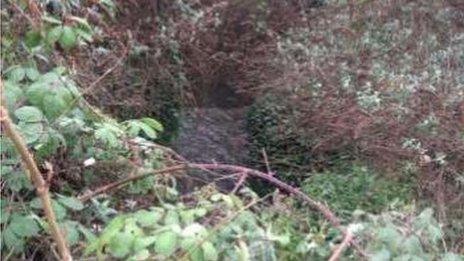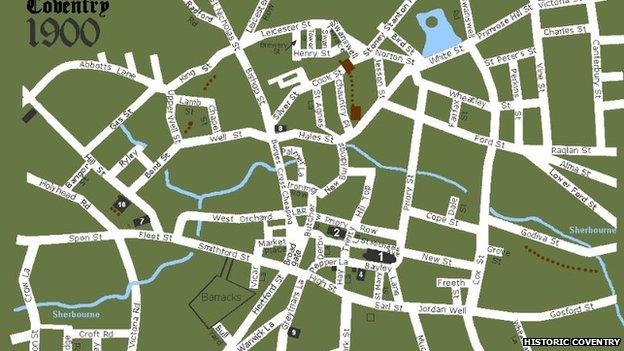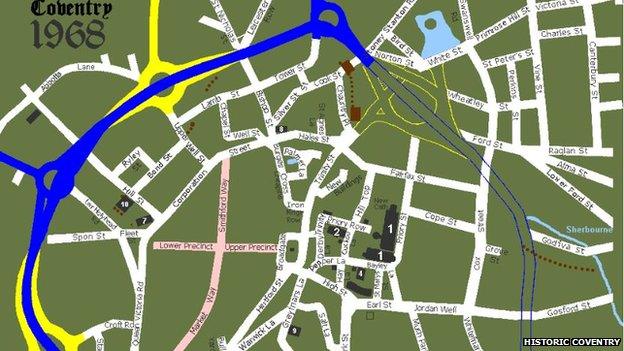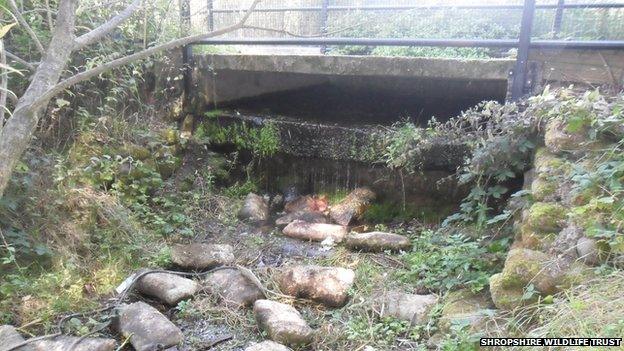Coventry's 'lost' river 'could be worth £1.5bn if restored'
- Published

The Sherbourne currently runs in culverts beneath the city
A "lost" river in Coventry could be worth £1.5bn to the city if it were brought back above ground, according to a report.
The River Sherbourne ran through the city centre until the 1960s, when it was channelled into a concrete culvert.
The Environment Agency said the watercourse was now of "poor" quality.
A Defra-funded report by Aecom, the company that designed the Olympics site, said restoring the Sherbourne would have financial benefits.
'Exciting time'
The report, named The Ripple Effect, was commissioned by Defra's Technology Strategy Board in 2013 to look at the benefits of environmental regeneration of Coventry.
"By allowing green infrastructure to do a proper job in a city, you make it a nice place and create value for that settlement," said Michael Henderson, an associate director with Aecom.
"People like spending time in green spaces and next to rivers and the buildings around rivers enjoy higher property values."

In 1900, the Sherbourne ran through much of Coventry city centre
The report suggested better management of Coventry's water cycle and said opening up the river could be worth about £1.5bn over 40 years.
The figure included the benefits of improved water quality, reduced flood risk, water treatment and drainage costs and property values.
The report estimated it would cost about £3.3m to open up the river around the Transport Museum.
Aecom said it was still working on a business case for the project.

But by the 1960s, it was largely channelled beneath the city
Anna Squires from Warwickshire Wildlife Trust said different groups in the city, including Coventry and Warwick Universities and the city council, were discussing the plans.
"It is an exciting time to see a document like this being produced, looking at sustainable urban development in cities," she said.
"For Coventry, the particularly exciting element about the river has sparked a few people's interest. It's a big and ambitious project."
Historian David McGrory said: "In the past, we have always had water running through Coventry.
"Water can make a big difference to a place. It gives heart to a city."
- Published29 March 2014
